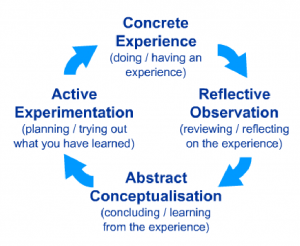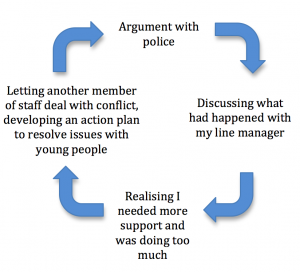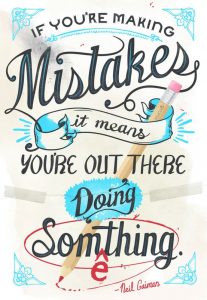In January my wife Sara and I had the great privilege of leading a training session for chaplains working in Further Education (FE) Colleges across the Bath and Wells Diocese. The question they asked us to cover was a great question – how can we better support LGBT young people who have a faith? A few people have asked for the content of our session, so this is a very condensed version of our ten recommendations for chaplains.
Listening is the role of any chaplain, but it is particularly important when it comes to LGBT young people. Let them tell their story. Listen without agenda, bias or judgement. Ask them what they need from you – don’t assume you know even if you’ve worked with LGBT young people before. We are all different, and what this young person needs from you may be completely unique. Being heard is often a healing act in itself for LGBT people, who are often made to listen to the views of others on their sexuality and identity.
It’s important not to use what is often referred to as ‘heteronormative’ language (defined in the Oxford dictionary as ‘denoting or relating to a world view that promotes heterosexuality as the normal or preferred sexual orientation’). For example, if you’re working with a female young person don’t assume they’ll have a male partner. It’s also really important to challenge homophobic behaviour and language, even what may be seen as harmless joking or ‘banter’ by others. Challenging this educates the young people you are with, but it also communicates you are a safe person to speak to about gender and sexuality issues. Ensure you educate yourself about pronouns and correct terminology, particularly when working with transgender young people. Ask them what pronouns they prefer – he/she/they.
In most faith communities there’s an understanding that we all land in slightly different places when it comes to theological issues, particularly secondary as opposed to primary issues. In youth work, a key principle has always been to journey with and walk alongside young people as they find their way and discover things for themselves, rather than indoctrinating them or creating copies of ourselves! We may give our opinions when asked but we don’t enforce our worldview onto someone, or indeed any viewpoint about a specific theological issue. It’s exactly the same when working with LGBT young people. Walk with them, equip them, resource them, but don’t assume they’ll end up in the same place as you theologically – whatever viewpoint you currently hold on this issue.
One of the many gifts the LGBT community has to give to the church, and in fact this is true of any minority group, is the unique perspective and experience they have on the world and the church. They look at things through a unique lens, and give us the opportunity to see things in a new way. For example, with some of our straight married friends, we love the way our same sex relationship allows them to reflect on aspects of their relationship, that they normally wouldn’t reflect on. We often give the example of how in our early married life we were free from assigning household tasks in accordance with gender stereotypes. Instead we assigned them based on gifting and availablity, and in doing this we enabled some of our straight friends to see they could do the same! This is a trivial example but there are much larger ones – we have so much to learn from every minority group and if you are truly listening and in relationship with LGBT young people you will learn lots of exciting and life changing things!

Whilst being hurt by church is not an experience that’s exclusive to the LGBT community, it is a common one. For LGBT people, church can often feel like a very unsafe, non-affirming and even hostile place where you are vulnerable to prejudice and at risk of being on the receiving end of discrimination and judgement. Don’t push a young person to be part of a faith community if that’s not what they want or are ready for, or unless you can guarantee their safety and protection. Have a wide definition of church – know that a young person can experience church in all kinds of ways and in all kinds of places. It’s worth saying too that church can be a positive place and there are some amazing churches that are fully inclusive and fully affirming. You might need to help a young person to do their research if they’re looking for an affirming faith community.

When I was about 15 I had some amazing youth leaders who recognised some of where my gifts were starting to show themselves. They took risks with me and let me preach, teach, lead small groups and be involved in lots of exciting ways. The chances they gave me helped me learn more about myself, more about the person God had made me to be and the things he was calling me to do. However if I’d have been known at that time as gay, I wouldn’t have been given those opportunities. Lots of churches at the moment seem to find it acceptable to ‘welcome’ LGBT people, but to restrict and limit their involvement and participation. This is very damaging to LGBT people as they are held back from being all they are called to be, but it also damages the church as needed gifts and talents are withheld from the church and wider community. They are welcomed as guests, rather than included and involved as family members. This isn’t going to change quickly! Things are moving, but whilst that happens there is an army of young, gifted LGBT people who are called to all kinds of spiritual gifts – worship leaders, small group hosts, youth workers, preachers etc, who are simply stopped from exercising these gifts if they are in non-affirming churches. Therefore if you have any opportunity as an FE chaplain to empower and enable a young LGBT person to try something out, to be involved, to lead, let them do it!
Speak out where you can on behalf of LGBT young people. Better still, take their voices with you. LGBT people are often restricted from leadership meetings or any structure or system which has the power to effect change, especially young LGBT people. Think about ways in which you can help their voice to be heard and listened to. The times my wife and I have felt the most loved by those around us, is when they have stood up for us, spoken out on our behalf, challenged prejudice and discrimination, risked their own relationships and hurt with us as we have felt hurt.
 Sexuality and gender are complex issues. They involve long and often difficult journeys. It may take time for a young person to find an identity they feel comfortable with, to settle or decide on language or pronouns. Give them time, be prepared for the long term as well as the short term. Understand that young people will shift and change in their views, understanding and expression as they grow older.
Sexuality and gender are complex issues. They involve long and often difficult journeys. It may take time for a young person to find an identity they feel comfortable with, to settle or decide on language or pronouns. Give them time, be prepared for the long term as well as the short term. Understand that young people will shift and change in their views, understanding and expression as they grow older.
What does it look like to be a holy, LGBT Christian? To be set apart, purified and counter cultural? This is an exciting question, and it’s a question the church isn’t often prepared to help LGBT people answer, as they’re only just starting to figure out you can be fully gay and fully Christian! Don’t feel you can’t challenge a young person about their behaviour – there are ways to explore sexuality that honour God and please him, and there are ways to explore sexuality that are destructive and unhelpful. When I’d come to the resolution that I was gay and that God was ok with it, I remember desperately searching for books, internet articles, anything that would tell me ‘what the rules are’! Sexually yes, but in other ways too. Until there are more books written, until we talk about this in church, until churches actually teach and guide people and provide LGBT role models in leadership positions who can help young people figure this stuff out, it will always be tricky and new ground for young people to explore. Don’t be afraid to ask the awkward questions and have the difficult conversations, you’ll find LGBT young people are actually yearning for someone they can speak to about the tough stuff.
Being LGBT, young and Christian can be difficult, but it can also be amazing. Don’t assume it’s a problem for a young person, or something they see as negative or difficult, they might be fine with it! Show them that their sexuality is a strength, that it’s part of who God made them to be. With it they can go places others cannot go, reach people others cannot reach, and see things in a unique way unlike anyone else.
(These recommendations come with a few disclaimers! I am no expert – I’m drawing on my own experience as a gay, married Christian with over fifteen years of youth work experience. Therefore these are opinions, and you’re welcome to disagree with them. I’m aware that issues transgender young people face have not been covered in detail here, nor issues young Muslim or Jewish young people face. For that I highly recommend www.keshetonline.org and www.imaan.org.uk)











 Pioneer ministry is a fairly new term within youth ministry but it’s important to mention it here because mistakes are inevitable in pioneering. Pioneer youth ministry is doing stuff that hasn’t been done before, carving out a new path that has never been walked. There is something essentially pioneering about all youth work, because every relationship you form is a new path, every individual you meet and work with will have totally different needs and responses compared to another. You are constantly pioneering, constantly guessing what will work and not work, what to say and not say, how this person will react to that. There are no maps, no senior workers to advise you or tell you about their mistakes so you don’t make the same ones. If it’s truly pioneering then trying it with a bit of guess work is the only way. Mistakes will be made, because they are the only way you can be lead to something that works, a path that’s walkable that others can follow. In his development of the lightbulb, Thomas Edison famously said, ‘If I find 10,000 ways something won’t work, I haven’t failed. I am not discouraged, because every wrong attempt discarded is another step forward’. It is the destiny of a pioneer to find thousands of ways that don’t work, all so that they can be lead to the one way that will work. Your mistakes will always be the paving slabs the path leading to your successes is made from.
Pioneer ministry is a fairly new term within youth ministry but it’s important to mention it here because mistakes are inevitable in pioneering. Pioneer youth ministry is doing stuff that hasn’t been done before, carving out a new path that has never been walked. There is something essentially pioneering about all youth work, because every relationship you form is a new path, every individual you meet and work with will have totally different needs and responses compared to another. You are constantly pioneering, constantly guessing what will work and not work, what to say and not say, how this person will react to that. There are no maps, no senior workers to advise you or tell you about their mistakes so you don’t make the same ones. If it’s truly pioneering then trying it with a bit of guess work is the only way. Mistakes will be made, because they are the only way you can be lead to something that works, a path that’s walkable that others can follow. In his development of the lightbulb, Thomas Edison famously said, ‘If I find 10,000 ways something won’t work, I haven’t failed. I am not discouraged, because every wrong attempt discarded is another step forward’. It is the destiny of a pioneer to find thousands of ways that don’t work, all so that they can be lead to the one way that will work. Your mistakes will always be the paving slabs the path leading to your successes is made from.
